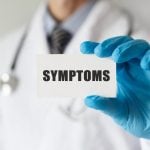
In the beginning….The first symptoms of Parkinson’s disease Dr. Gilbert discusses the common first symptoms of Parkinson’s disease

In the beginning….The first symptoms of Parkinson’s disease Dr. Gilbert discusses the common first symptoms of Parkinson’s disease

Exploring Vision Changes in Parkinson’s Disease Insights from Dr. Gilbert Hosts with Dr. Janet Rucker Vision changes are a...see more

It has long been understood that Parkinson’s disease (PD) does not just cause movement, or motor, symptoms, but also...see more

Understanding Cognitive Challenges in Parkinson’s Disease: PDD vs. DLB Cognitive challenges are a very common non-motor symptom of Parkinson’s...see more

Understanding what factors may worsen Parkinson’s symptoms Many people with Parkinson’s disease (PD) experience variation in their motor symptoms...see more

How Parkinson’s medications may affect behavior Dopaminergic medications (or medications that enhance the brain’s dopamine system) are the mainstay...see more

Insights from Dr. Britt Stone on APDA’s Dr. Gilbert Hosts On a recent episode of APDA’s Dr. Gilbert Hosts, I spoke...see more

Exploring Parkinson’s Disease’s Impact on Blood Pressure Control On a recent episode of APDA’s Dr. Gilbert Hosts, I spoke...see more

Exploring Parkinson’s Disease’s Impact on Urinary Dysfunction On a recent episode of APDA’s Dr. Gilbert Hosts, I spoke with...see more

Understanding Cognitive Fluctuations: What Do They Entail? Cognitive difficulties are a common symptom of Parkinson’s disease and can be...see more
Simple Email Signup v2 (Salsa replacement form)